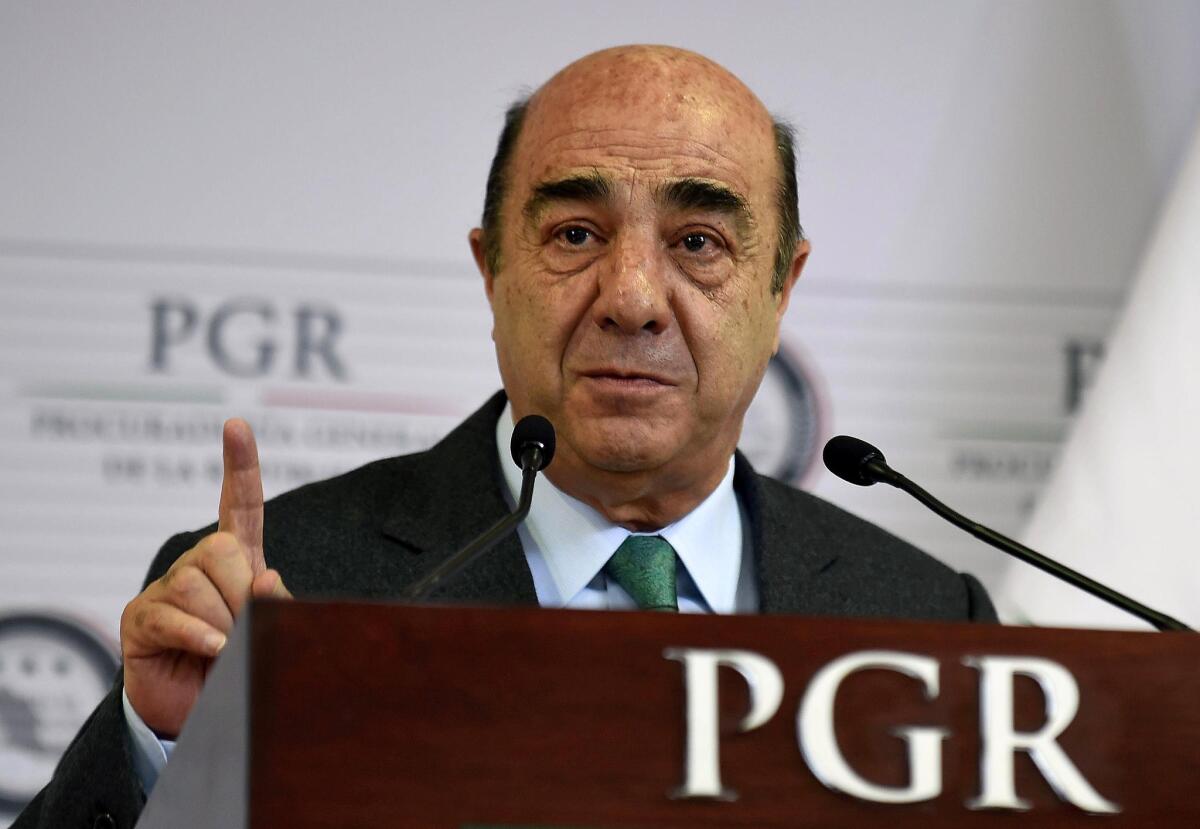Mexico officials conclude ‘without a doubt’ 43 students were killed

Reporting from Mexico City — Hoping to move beyond the crisis that has dogged their government for four months, Mexican officials Tuesday issued final findings in the case of 43 missing college students, saying they were killed by corrupt authorities working with a drug gang and their bodies were incinerated.
Atty. Gen. Jesus Murillo Karam all but closed the case, saying the “historical truth” of how the students were killed had been established, even though only one body has been identified.
The investigation “allows us … without a doubt to conclude that the students were deprived of their liberty, killed, incinerated and thrown into the San Juan River” near the town of Iguala where they were kidnapped Sept. 26, Murillo said in a news conference.
His description Tuesday of the fates of the 43 young men, freshmen at a teachers college in Guerrero state for the rural poor, offered little new information, but was notable for its definitive and final nature.
The case has roiled Mexico, triggering a string of emotional street demonstrations and harsh protests against the government, and the latest announcement is not expected to alleviate that. Many in Mexico doubt the government’s explanations and are critical of the way the investigation has been handled.
Parents of the 43 students on Monday joined a march with thousands of other people to mark the fourth month since the men were kidnapped. They have said they will not accept the government’s conclusions until they have concrete proof of the students’ identities.
To a reporter’s questions, Murillo said there was “absolutely” no evidence that the army had participated in the disappearance of the students, as some news accounts have alleged.
Murillo elaborated on the apparent motive of the killers, saying they believed at least some of the students were members of a drug gang known as the Rojos.
The attorney general has previously said the mayor of Iguala and his wife, whose family is linked to drug traffickers, thought the students were going to disrupt an event they were hosting and ordered the police to intercept the students. The two explanations are not mutually exclusive.
The mayor and his wife are among 99 suspects under arrest. Murillo said the investigation relied on 39 confessions from people to their alleged roles in the kidnappings and slayings as well as forensic evidence. The relatives of some of those under arrest have told The Times that the confessions were extracted through torture.
Murillo said the students’ bodies were heaped in a trash dump, covered with gasoline, wood and other inflammable items and burned for hours at temperatures that reached 1,600 degrees Celsius. Little was left but ashes and teeth and bone fragments too decomposed to extract DNA, he said.
Seventeen samples have been sent to a laboratory in Innsbruck, Austria, but only one has been conclusively identified as one of the students.
President Enrique Peña Nieto, who has been criticized for seeming tone-deaf in his handling of the crisis, said Tuesday he understood the pain of society and especially the students’ families, but that Mexico “cannot remain trapped there.”
For more news out of Mexico, Latin America, follow @TracyKWilkinson.
More to Read
Sign up for Essential California
The most important California stories and recommendations in your inbox every morning.
You may occasionally receive promotional content from the Los Angeles Times.










